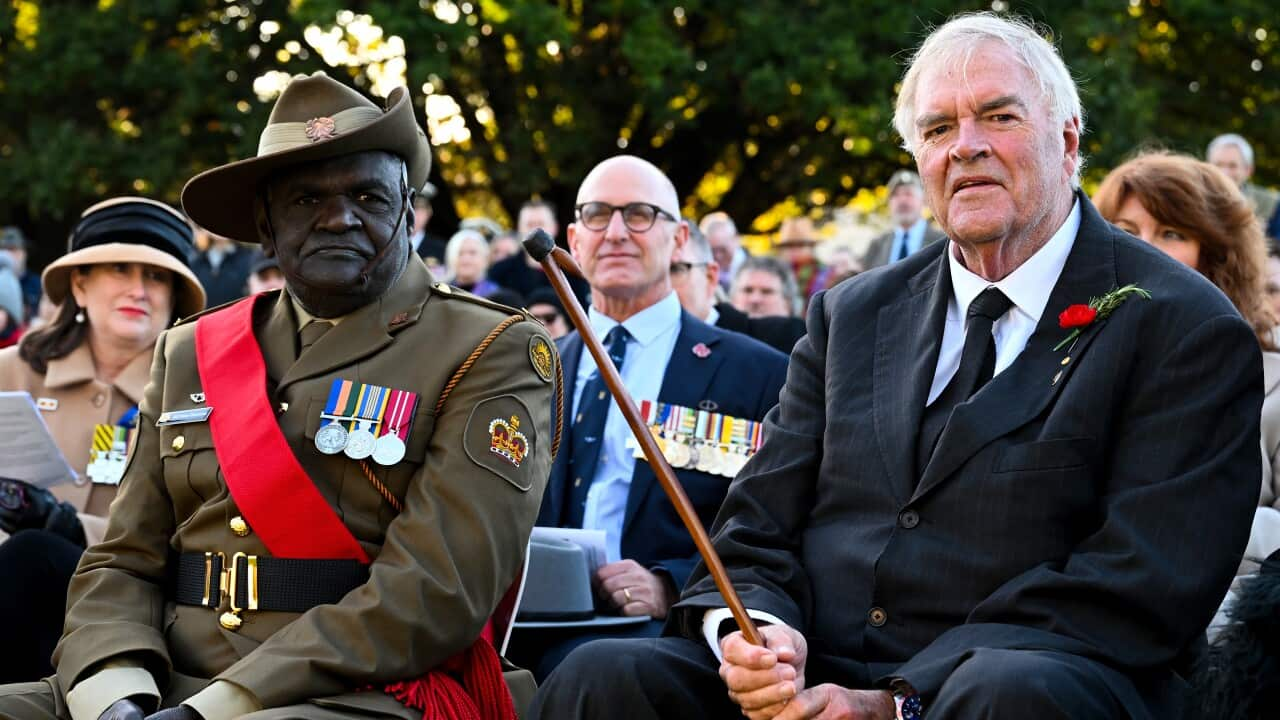Remembering Indigenous resistance during the bloody conquest of Australia would help facilitate the country's truth-telling process, an author who has chronicled his family's role in the wars says, calling for their official recognition by the Australian War Memorial.
The Frontier Wars were armed and violent conflicts between British colonisers and First Nations people that occurred during the decades following the 1788 arrival of the First Fleet.
Researchers from the University of Newcastle estimate that more than 10,000 Aboriginal and Torres Strait Islanders were killed in more than 400 massacres.
The conflicts are viewed as integral to the establishment of the Australian colony and state, but many institutions including the Australian War Memorial in Canberra have come under criticism for their limited recognition of this history.
"That our war memorial does not deal with the conquest of this continent is ludicrous," journalist and author David Marr told the Securing Our Futures National Security Conference on Wednesday.
"There are memorials to the sniffer dogs of the First World War ... and we haven't yet found the space in those halls to commemorate the war that is the basis of our country's existence."
The Australian War Memorial's council committed to expanding the depiction and presentation of frontier violence in September 2022, a spokesperson said.
They also noted the institution's Colonial galleries had "a small number of works depicting frontier violence", though this has been temporarily removed as the memorial undergoes a $550 million development project.
When the galleries' development recommences in 2025, it will be informed by advice from Indigenous and Torres Strait Islander groups.
In 2023, Marr published Killing for Country, an examination of the Frontier War and the role his family played in this history, and he says telling the truth of Australia's creation would strengthen the nation.
"The thing about skeletons in the closet - they're noisy buggers," he said.
"They rattle away in there, distracting us until we deal with them.
"Then we are stronger, we are more secure and we are a more grown up nation."












